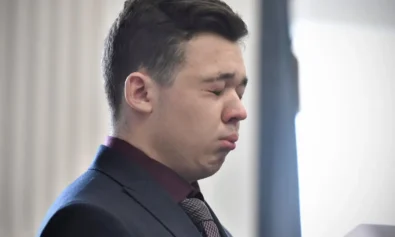
“We have, we had, on this campus last semester three cases of young women who after having done whatever they did with the young men, and then it didn’t turn out the way they wanted it to turn out — guess what they did?” Jennings said. “They went to [the university’s Department of] Public Safety and said, ‘He raped me.'”
He then expressed how much of a hassle these allegations prove to be for him.
“So then we have to do an investigation. We have to start pulling back the layers and asking all kinds of questions, and when we start trying to collect the data and ask the questions—and why do we do that? Because we know that possibly somebody’s life is getting ready to change for the rest of their life,” he said.
The revelation of Jennings’ comments have gone viral, casing consternation and outrage across the Internet, particularly in the Black community.
The district attorney for Chester County, which includes Lincoln University, was quick to express his disdain for Jennings comments.
“His comments sound like that of a criminal defense lawyer from about 1850,” DA Tom Hogan told the Huffington Post on Monday. “First, he blames the victim. Second, he asks victims not to report. And third, he sings a sad song about the defendants.”
The university is standing by the president and confirmed the accusations that three women at the university had lied about their rapes. They did admit that Jennings had the time frame of the cases wrong though—two of them were reported in the previous semester.
Though the university is claiming the victims were not being truthful, Michael Noone, first assistant district attorney in Chester County, told the Philadelphia Inquirer that his office “did not receive any reports of rape where the alleged victims recanted or lied to authorities” at Lincoln University last semester.
Experts say stories like these ultimately make women afraid to report when they have been raped or abused. They fear they won’t be believed or, even worse, they will be blamed.
There’s no data to support the allegation that false rape reports are common. One 10-year study of sexual assault allegations at Northeastern University found the share of false claims to be 5.9 percent, and a 2010 report on that study deduced that the overall rate of false rape claims was between 2 and 10 percent.
The incorrect belief that falsely accusing men of rape is a common practice perpetuates rape culture and allows more rapists to walk free. Consider the recent allegations of around 14 sexual abuse counts against comedian Bill Cosby. The majority of these women claim to have been abused almost twenty years ago, but are just now coming forward because it was hard to get anyone to believe them.
“I’m saying this because, first and foremost, don’t put yourself in a situation that would cause you to be trying to explain something that really needs no explanation, had you not put yourself in that situation,” Jennings concluded.
Thankfully, not all of the faculty at Lincoln share Jennings beliefs. Robert Langley, head of the faculty union, said he strongly disagreed with the idea that a woman is “somehow responsible (even partially) for being raped.”
“Sometimes a woman will become intoxicated at a party and/or dress provocatively,” Langley said in an email. “However, that does not entitle a man to their body without their consent. It does not. No means no.”

